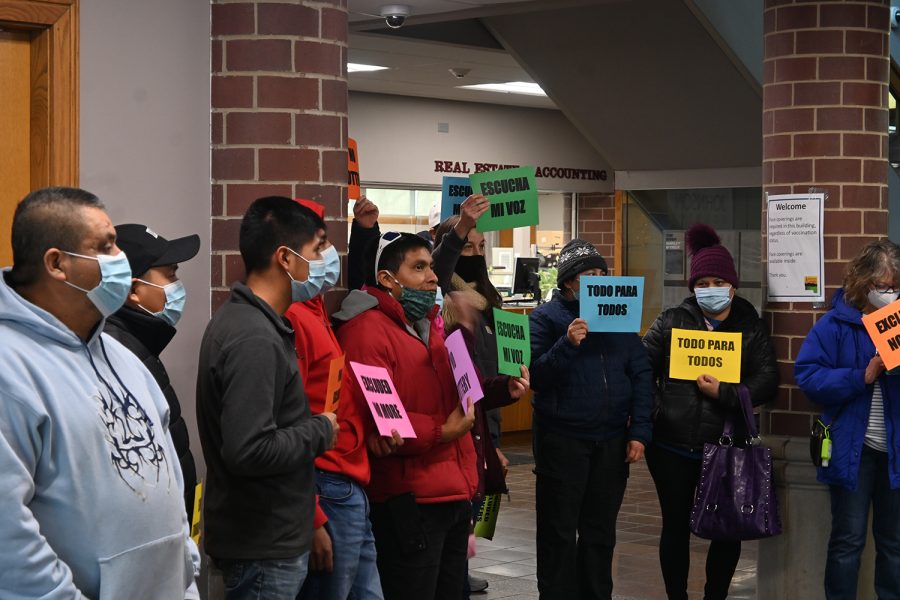Surviving change was the theme of the 30th-annual Presidential Lecture at the University of Iowa.
Introduced by UI President Sally Mason, Sara Rynes-Weller, the John F. Murray Professor of Management and Organizations in the Tippie College of Business, greeted a packed lecture hall on Sunday evening. Rynes-Weller used real-world examples to show how change can be an opportunity to grow for an individual, company, or organization.
“Everyone has strong emotions about, particularly certain kinds, of change,” she said. “It’s really easy for people to participate, give ideas, send stories, and send pictures about change because it’s very engaging.”
However, for many companies, outside change and their lack of adaptation spelled disaster.
“Everyone in this room probably feels that we are in a time of change that is different from what has preceded us,” Rynes-Weller said. “That change is longer likely to be slow — to be linear.”
She gave examples of organizations that have both survived changed and those who have not in an effort to inspire the audience.
“I found it very inspiring because she is talking about something that we all confront and how we can optimize that instead of putting our heads in the sand and hoping it goes by and leaves us alone,” said Laurie Croft, the administrator for professional development at the Belin-Blank Center.
Although Rynes-Weller speaks from a business background, she offered examples that applied to everyone.
“I thought her examples were so terrific because they were so wide-ranging,” Croft said. “They weren’t from just one particular segment of the employment world.”
One example Rynes-Weller gave dealt with online education.
“Higher education is undergoing the possibility of massive disruptive change,” she said. “The major thing people are thinking of as disruptive change is online education.”
From every example, she offered options for change.
“She provided a number of positive directions that people could think about,” said Gene Savin, a UI professor emeritus of economics.
One of the ideas that Rynes-Weller endorsed was that if companies or organizations see the big picture, they will do better in general.
“When an organization has a noble purpose, when an organization has noble leaders who co-create a vision with their employees that everyone is buying into,” she said. “When everyone is open to the world and wants to know the truth so that it can improve.”
This idea is especially important if an organization is dealing with a crisis.
“At some point, for change to go on in a positive way, fear needs to change to hope and ultimately inspiration,” Rynes-Weller said.
Jesse Singerman, a UI adjunct lecturer of business, believes that loving the work you do is important, but not common enough.
“You feel love for being there,” she said. “I’ve experienced them, but it’s rarer than it ought to be. It really is a tremendous motivator.”
For some at the UI, though, that passion is already there.
“I though what she was talking about was actually already true of what we do,” Croft said. “In terms of having a mission to make the world better, I feel that it’s already there.”
Susan Assouline, the director of the Belin-Blank Center, agreed.
“I found it inspirational, informational, and it reaffirmed where I stand,” she said.






